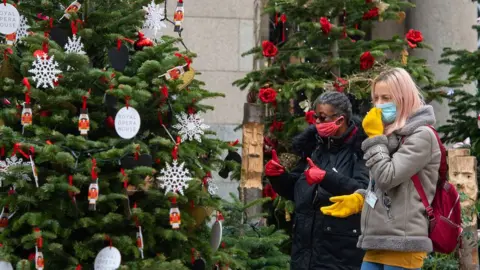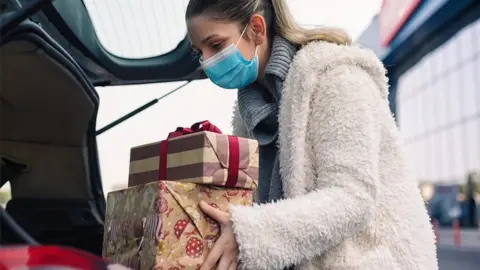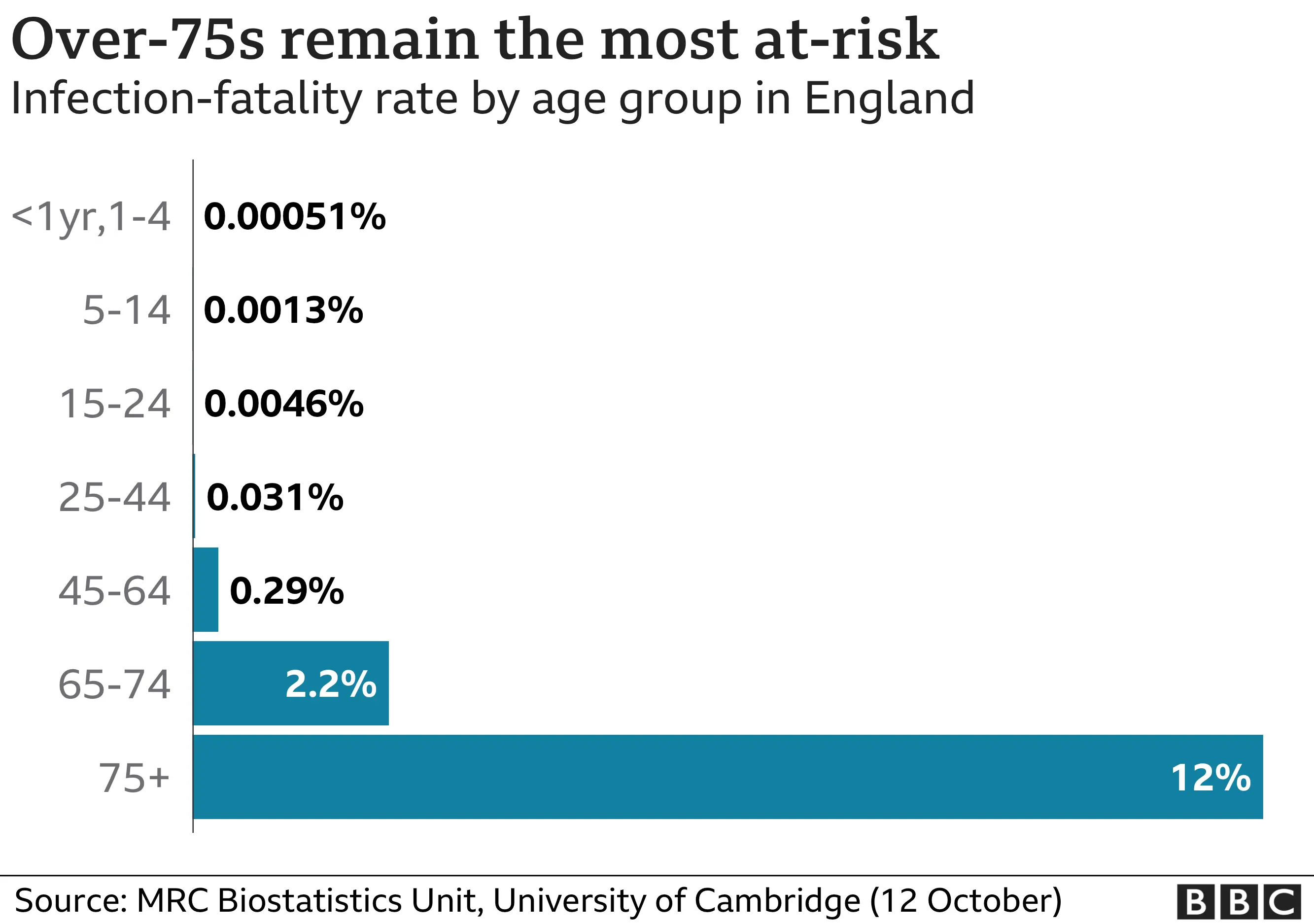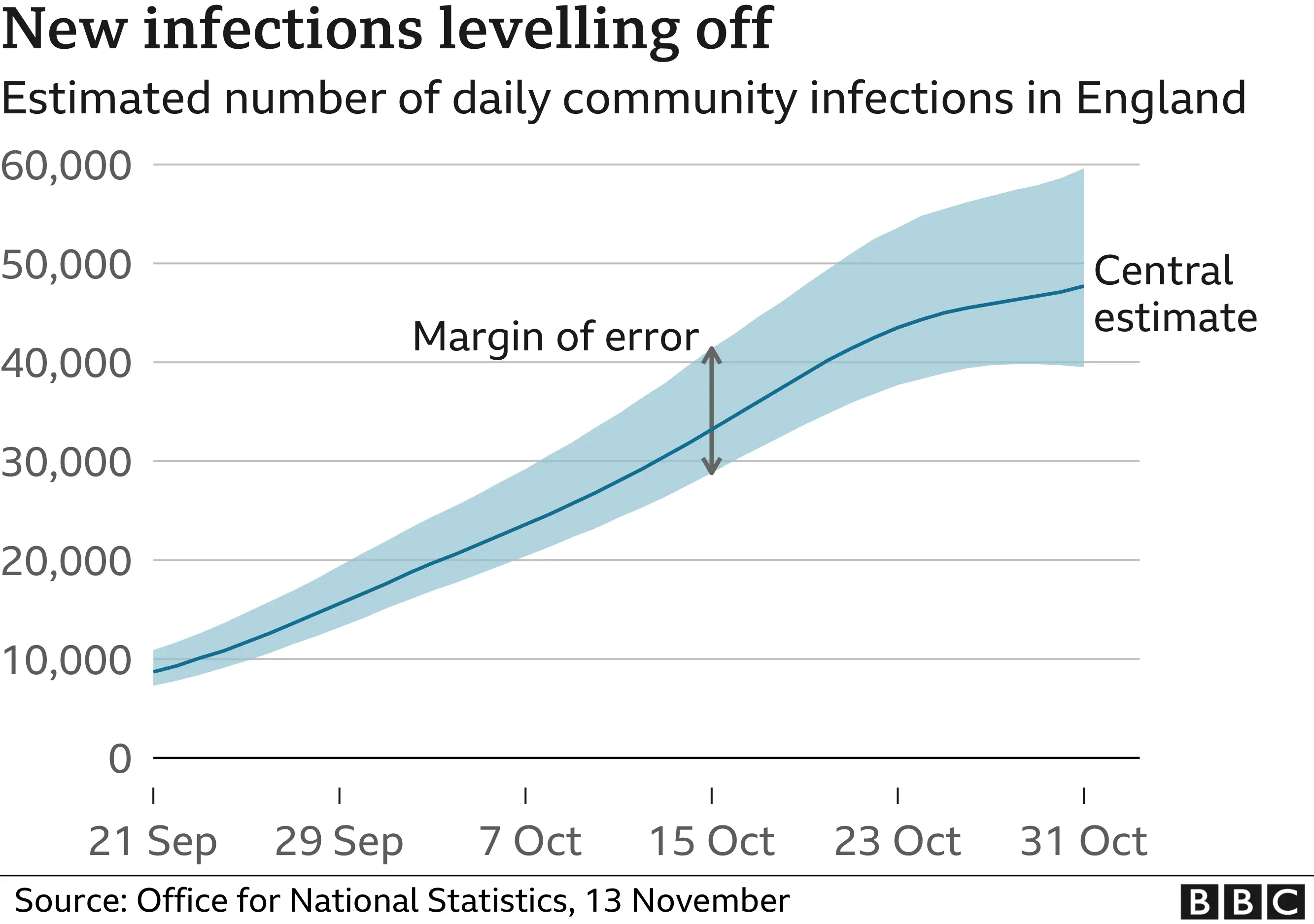Covid: Tiers and Christmas - a recipe for disaster?

 PA Media
PA MediaWith England's lockdown coming to an end, it's all change.
A new system of regional tiers will come into force next week. That will be followed by a relaxation of rules at Christmas across the UK which will allow up to three households to meet over the festive period.
But scientists are warning the move risks a third wave of Covid. Is the government making a mistake?
The scientists think so…
Scientists have been pretty vocal about their concerns. Prof Andrew Hayward, an expert in infectious diseases at University College London and member of the government's Scientific Advisory Group on Emergencies (Sage), believes the relaxation of restrictions at Christmas is tantamount to "throwing fuel on the Covid fire".
He warns it is likely to lead to a third wave of infection with "hospitals being overrun and more unnecessary deaths".
Edinburgh University global public health chair Prof Devi Sridhar, who advises the Scottish government, agrees. She says she cannot understand the move given that the rollout of vaccines is so close.
"Why risk getting infected and infecting others over the holidays? Delaying by a few months is perfectly rational given solutions within sight in the spring." She now fears we will "pay for" Christmas with lockdowns in the new year.
But could it have the opposite effect?
What is certainly true is that more mixing will lead to more infections. That is a given since the virus thrives on human contact. But there is an argument that what the government is doing will actually help curb infections in both the short and long-term.
Modelling done for the government has suggested that for every day of restrictions being relaxed, five days of tougher ones are needed.
But others advising ministers think this way of looking at things is too one-dimensional. "The problem with the modellers," says a member of SPI-B, the government committee that advises on human behaviour, "is that they see a nut and reach for the sledgehammer.
"Banning Christmas was never going to work. People were not going to follow the rules. Providing guidance to help them celebrate safely is perhaps a much better way of managing the situation."
 Getty Images
Getty ImagesThe UK is also not unique in taking this approach. France has announced it will be relaxing the rules at Christmas and other parts of Europe look likely to follow suit in the coming weeks.
Prof Stephen Reicher, an expert in social psychology at the University of St Andrews who also sits on SPI-B, says it is impossible to know to what extent the public would have followed the restrictions at Christmas had they remained in place.
But he says there was certainly a danger that people would have "asserted their will", arguing: "People don't like being lectured to."
He says that by providing people with the autonomy to make their own decisions, you encourage people to take more responsibility and become actively engaged in working out the best choice to make.
And he thinks the pivot from "paternalism to partnership" could actually help build trust in the longer term, which will stand the UK in good stead for the rest of the winter in terms of adherence to restrictions and take-up of the vaccine.
Time for less stick and more carrot?
More trust is certainly needed. Polling by YouGov shows public trust in the government has halved since the spring, with just a third of people happy with its handling of the pandemic.
Prof Reicher says what the government has to do now is provide good, clear advice on how to reduce the risks, from ensuring rooms are ventilated to the benefits of isolating before getting together.
But he would also like to see some more practical support. As an example, he says the government could provide "Covid fuel allowances" to allow people to leave windows open and the heating on during Christmas.
Another idea, he says, would be to introduce an extra bank holiday at Easter to provide an incentive to delay family get-togethers to a time when those at most risk are likely to have been vaccinated, and the change in the seasons means there is likely to be less virus around.
There are some signs the government is moving in this direction. Ministers have being speaking about the need to use the opportunity to meet up responsibly - with the key message being just because you can, it does not mean you have to.
Christmas could be the boost people need
A crucial consideration will, of course, be assessing who is the most vulnerable in each Christmas bubble.
Age is the overriding factor when it comes to risk from Covid.


But as well as minimising risk, there is also a need to assess the benefits. For some, this could be the last chance they have of a family Christmas.
And, even where that is not the case, a year spent not seeing family and being isolated from people has clearly taken its toll.
Prof Paul Hunter, from the University of East Anglia's school of medicine, says the benefits on people's mental health of being able to meet up with family over this time "should not be underestimated".
Indeed, he believes for some it will provide the boost that people need to "make it through the rest of winter".
Don't forget the tiers
But the other factor that is just as important - and this was a point made earlier this week by England's chief medical officer Prof Chris Whitty - is adherence to the regional tier restrictions in the lead up to Christmas and afterwards.
Doing this, he says, will minimise the risks.
The move into lockdown was widely interpreted as a sign the regional tiers introduced in mid October were not working. But infection rates were actually stabilising by the time lockdown came in as the chart below shows.


And now an analysis by the University of East Anglia has shed more light on how they could be more effective.
It looked at infection rates across 315 local authority areas across England during the period where tiers were used. It found the tier with the least restrictions - tier one - was largely inadequate in that it was unable to control the virus because rates of infection were too high.
Tier two was effective in about half of local authority areas placed in it, while tier three was good enough to drive the R number measuring the rate of infection below one.
One of the key problems, the research said, was the fact that areas were often not moved into a higher tier quickly enough.
The government says it will learn the lessons from that. It has already moved to beef up the tiers - the top two will see tighter restrictions on hospitality in particular.
The hope is that a more intelligent use of the system coupled with the Christmas boost to the public's resolve could suppress virus enough to avoid another lockdown and get us through winter.
Follow Nick on Twitter
